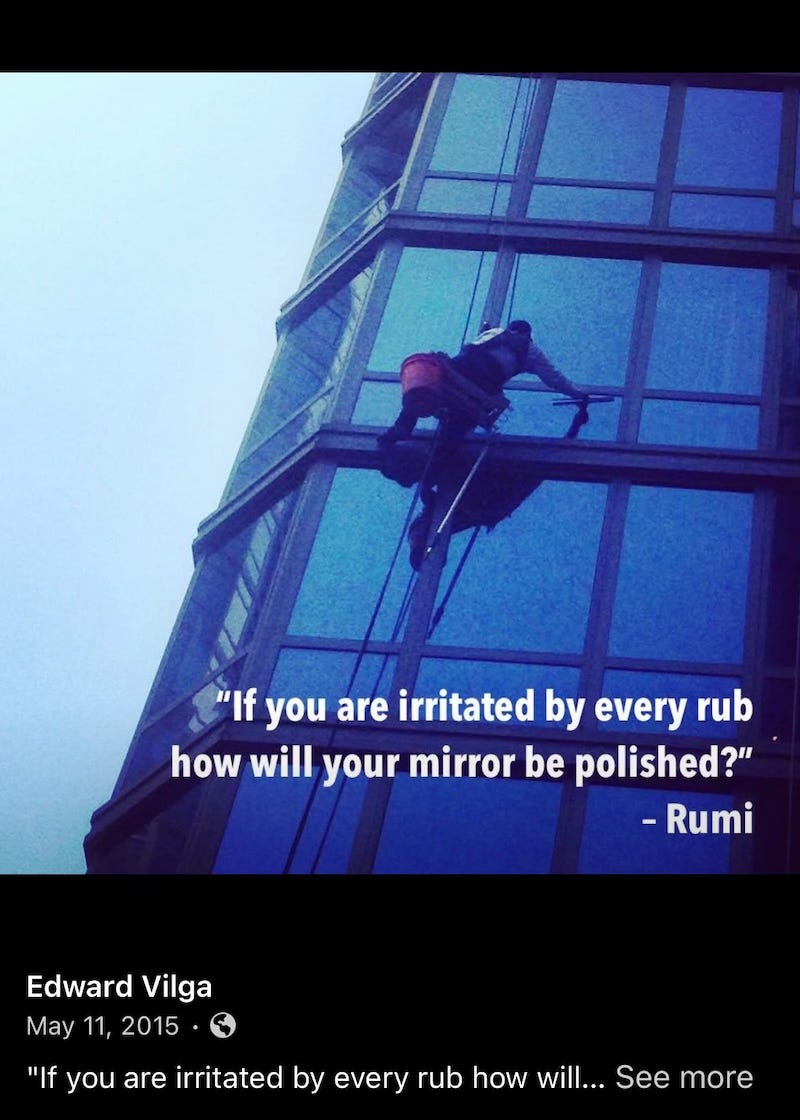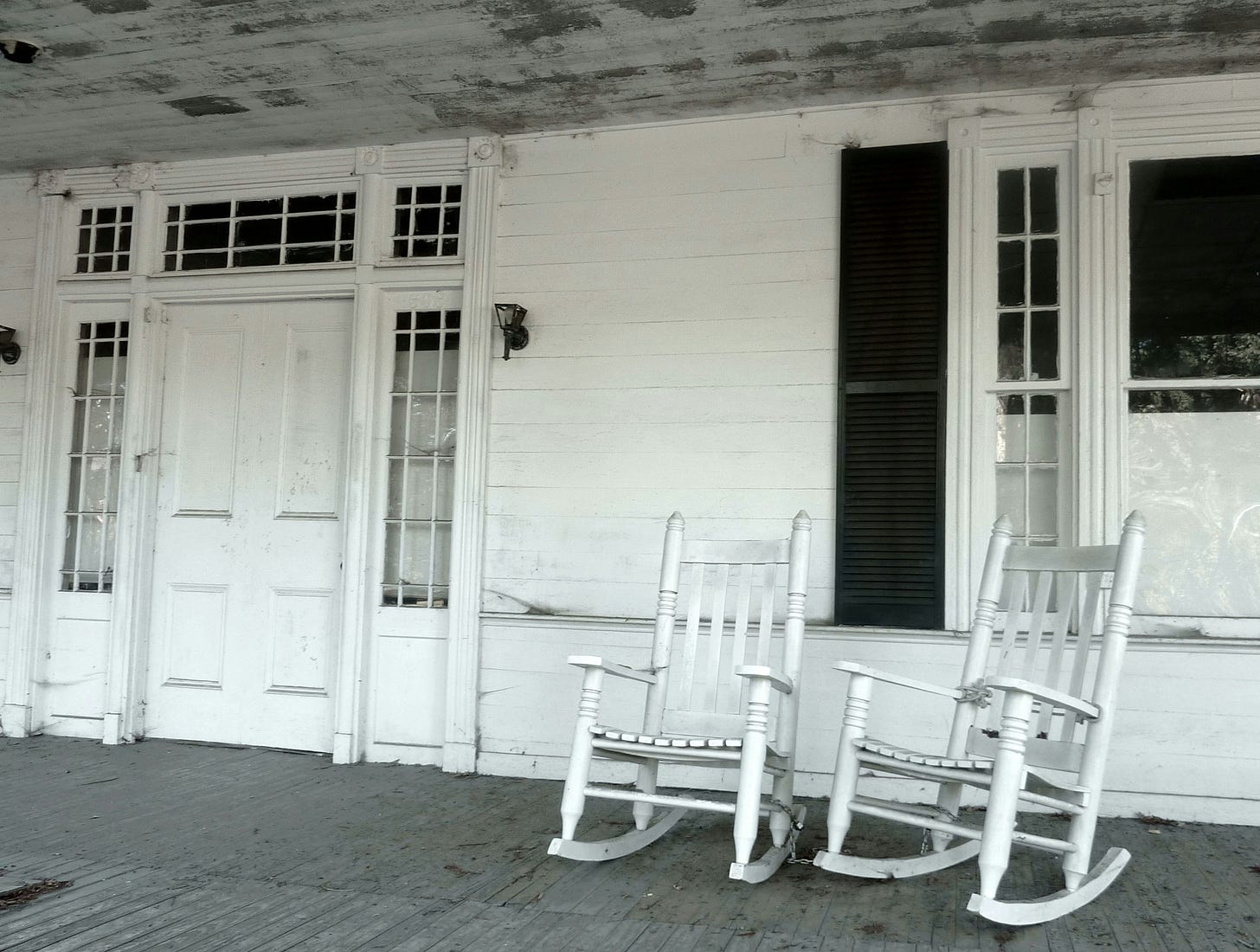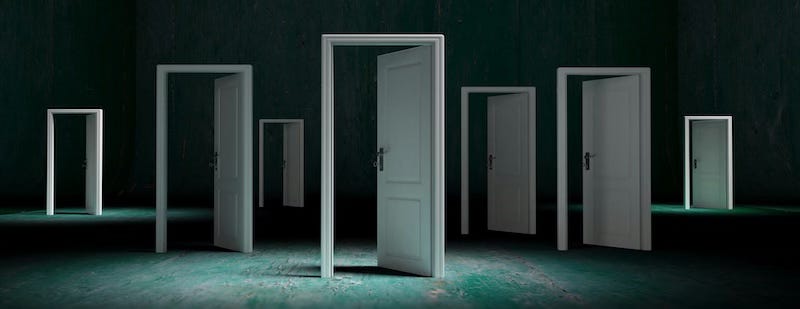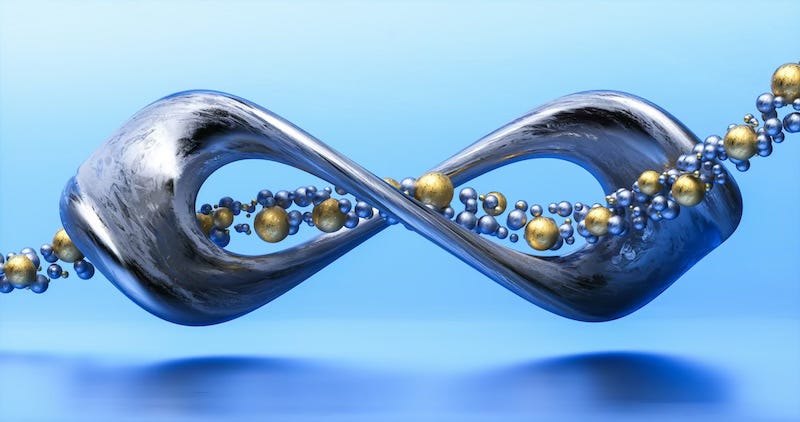Although it definitely seems that “The Algorithm”—something everyone refers to but I suspect no one actually understands—is spying on all our private conversations, this felt like a pretty straightforward synchronicity.
In last week’s newsletter, while writing about this month’s theme, The Mirror—guided meditation HERE—since it was getting too long, I cut a section centered around a Rumi quote I’ve always loved.
The next morning, Facebook reminded me I’d posted that very same quote exactly ten years ago to the day, looking at the window washer across the street.
If you are irritated by every rub,
how will your mirror be polished?
— Rumi

My primary reason for cutting out the quote was that the newsletter was getting a little long.
Indeed, as I write this, Substack is happy to measure not only my character, word, and sentence count; it also calculates reading and speaking time.
This is mostly very helpful because I’m truly in a season of desperately trying to squeeze everything in.
Very soon, I hope to be launching this newsletter’s companion podcast, as well as a new book project that may be served by a Kickstarter campaign.
Beyond this, when someone asks what I’m working on, I usually reply that I’m soft-launching a global wellness app AND my mother’s Etsy shop—and that the Etsy shop is by far the more time-consuming project.
Note: I’ll share the link for each soon, though the dates keep shifting for the latter due to reasons beyond my control.
For example, in addition to the eight vintage caned chairs she’s already collected—that I still have to post—my mother, unable to resist after a visit to her sister’s, returned with yet another rocking chair for the shop.

Not the actual rockers—at least not yet.
Alongside my Sisyphean Etsy labors, I’m also prepping a new workshop—a dress rehearsal of sorts.
I’m speaking this week at an online corporate wellness event, giving a version of the workshop that’s going to be the final keynote for the DailyOM’s first-ever Global Summit in June.
The Summit is a three-day series of interactive workshops featuring everything from EFT Tapping for Weight Loss, to Longevity Resets, to Rewriting Your Story (led by yours truly).
You can sign up for 60% off with my affiliate link HERE.
And if you want to watch the one-minute trailer for the event, it’s below ↓.
Segueing back to Mirrors…
Unless there’s an Etsy store emergency—a pop-up sale somewhere on Vintage Rocking Chairs, perhaps—I hope to share next week the offering I’m preparing for these events:
A BuzzFeed-style Quiz.
Mine is entitled “The Story That’s Secretly Shaping Your Life.”
Pulling back the marketing curtain, there’s ample data showing that quizzes are two to three times more effective than anything else for engaging new people with your content.
On a more personal level, the psychology of it all fascinates me, particularly as it ties directly into our relationship with mirrors.
Indeed, you’re answering questions about yourself in order to learn about yourself.
Even when the revelation is slight—Which Golden Girl or Sex and the City character are you, really?—there’s something wildly addictive about these dopamine hits of self-discovery.
Especially when well-crafted, a quiz can feel like a personalized mirror into your psyche—appearing almost instantly after the micro-commitment of answering a few multiple-choice questions.
If only all avenues toward Self-Discovery were this easy…

To be honest, another reason why I didn’t include that Rumi quote about polishing the mirror was that I wanted to contemplate it further.
There’s something so trippy and mind-bending about this simple line.
In the Transformation Book Club, this month we’re reading Ryan Holiday’s The Obstacle Is the Way.
Although he never references mirrors directly, Holiday’s path of Stoic inquiry parallels the classic role of a mirror’s objectivity—namely, its unflinching clarity.
“To see an obstacle clearly and dispassionately, to assess it as it truly is—not as we’d like it to be—is the first step in overcoming it.”
Rumi, however, has a more complicated perspective regarding mirrors.
Indeed, at one point he even says:
“We are the mirror,
as well as the face in it.”
Reflecting on this—that somehow we are both the face in the mirror and the mirror itself—can get a bit dizzying.
The spiritual vertigo intensifies, however, when it comes to lines like this:
“You have no idea how hard I’ve looked for a gift to bring You.
Nothing seemed right.
What’s the point of bringing gold to the gold mine, or water to the ocean. Everything I came up with was like taking spices to the Orient.
It’s no good giving my heart and my soul because you already have these.
So I’ve brought you a mirror.
Look at yourself and remember me.”
For the narcissist, the mirror offers limitless possibilities for self-indulgence.
For Rumi’s recipient, instead it’s an opportunity to reflect back the beloved.
The more you think about it, the more expansive it gets.

Back to that original “polishing the mirror” quote.
There’s a resemblance to Nietzsche’s famous line: “That which does not kill us makes us stronger,” a thought that goes all the way back to the Stoic Seneca’s “Difficulties strengthen the mind, as labor does the body.”
There’s something more at play here with Rumi.
Not only does the challenge bring clarity, it also invites transcendence.
One of the most famous Zen Koans—a paradoxical riddle meant to short-circuit the thinking mind and spark awakening—is:
“What was your original face
before your parents were born?”
The Koan is a directive to contemplate something the brain cannot process, something designed to disorient the intellect and nudge you towards pure insight.
It asks you to look at something that isn’t there—something no mirror could ever reflect back.
Like listing everything in my mother’s Etsy store, it’s a task that no human can ever complete.

Ironically, all this high-minded spiritual talk about mirrors leads me back to a quote attributed to fashion icon Coco Chanel:
“Before you leave the house,
look in the mirror and take one thing off.”
It’s a classic piece of fashion advice encouraging simplicity and restraint—often interpreted as a reminder that less is more and that elegance comes from editing.
Indeed, as Diana Vreeland wrote in Allure, “Elegance is refusal.”
(Note: Vreeland wasn’t sure who said it first—just that it had always stuck with her.)
This may be that rare moment where fashion and philosophy dovetail: using the mirror to pare down to essentials.
More than just tasteful accessorizing, it’s about wiping away the ego’s grime and seeing beyond all appearances.
Paradoxically, the more we release our identifications, the more our identity expands.
To look in the mirror and see less of ourselves each time is truly a dizzying invitation—one that Rumi and I are cordially extending to all of us.

